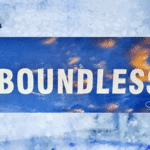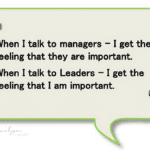Every day we have to make decisions. Some of them are so trivial that we don’t even focus on them, like “should I hit the snooze button one more time” or “red or white wine with dinner”. But others are serious and it’s those serious decisions that tell others about our ability to lead in our organizations.
When it comes to decision making, I find that people fall into four categories.
- Those who make decisions too quickly. These people want the decision done and over so they can move on to something else. You know who those people are: they’re the ones that interview one person and decide to hire them just so they can say they’ve got an employee or decide to fire someone before they hear the other side of the story. For us HR Pros, we’re constantly reeling them in or playing ‘devil’s advocate‘ to make sure they’ve considered everything before they run off and do something they might later regret.
- Those who turn individual decisions into group decisions. I’m all for teamwork and building consensus but truth be told…some decisions need to be made by one person (and only one person.) It’s important to know what decisions can and should be made by individuals and which ones need team input. We’ve all seen what happens when a leader turns to the group to make a decision they should have made on their own…that’s how nightmare meetings are born.
- Those who don’t make decisions at all. This type of person can actually cause the most harm to your organization. Many people think that, by not making a decision, nothing can go wrong. Bzzzz. FAIL. People who hold out making a decision hoping for one additional piece of information to hit them over the head and tell them exactly what to do are creating a bigger problem. They stop the organization from functioning. It’s impossible to agonize over every little tidbit to make sure each piece is considered equally in the thought process. The reality is, with most decisions, you might never get all the information.
Obviously #4 is the person who can filter through available information and make the right call based upon the whole story. That’s the art of decision making – knowing who needs to make the decision and how much and what kind of information needs to be considered.
In the end, we should be a blend of all styles. For example, we should make decisions quickly during times of crisis. We should demonstrate independent thought as well as ask for team feedback at the proper moments. And, whenever possible, we should hold off making decisions until we believe all the information is on the table.
But that alone isn’t enough . . .
0







Wally Bock says
Congratulations! This post was selected as one of the five best business blog posts of the week in my Three Star Leadership Midweek Review of the Business Blogs.
http://blog.threestarleadership.com/2009/01/21/12109-midweek-look-at-the-business-blogs.aspx
Wally Bock